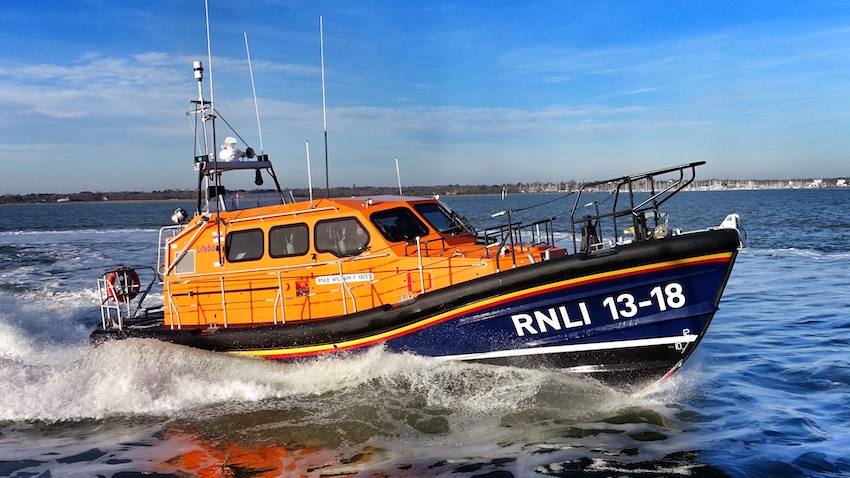MAHLE Powertrain pushes clean engines in maritime fleets
MAHLE Powertrain is leading a project to develop sustainable propulsion solutions for marine vessels where electrified technologies may not be practical.
The collaboration with the Royal National Lifeboat Institution (RNLI), the University of Nottingham and Clean Air Power will initially target search and rescue vessels. The low energy density and high weight of current battery technologies, coupled with the need to quickly replenish for the next mission, means that alternative green propulsion solutions are required.
MAHLE’s Jet Ignition (MJI) technology, optimised for hydrogen combustion under the name HyJet, enables the ignition of sustainable fuels in clean combustion engines. The project will aim to deliver retrofit solutions at scale across commercial, professional, and governmental fleets.
“The current and predicted future state of battery technology alone can’t offer the range and performance required by the RNLI at an acceptable weight for retrofit to its lifeboats,” said Martin Berger, Vice President Corporate Research and Advanced Engineering at MAHLE.
“The RNLI has committed to eliminating or reducing impacts on the environment, and to become a low-carbon, climate-resilient organisation,” said Victoria Limbrick, Carbon & Energy Manager, RNLI. “Fuel for our lifeboats, rescue watercraft and logistics vehicles accounts for around 57 per cent of our total energy use. The HyJet project offers an exciting opportunity to investigate and learn about potential solutions that could help meet our challenging sustainability targets and to fulfil our ambition to move away from fossil fuels.”
MAHLE’s Jet Ignition technology consists of a small pre-chamber which can be fitted into the cylinder head. Combustion is initiated in this pre-chamber, with the resulting hot combustion gas forced through small orifices into the main combustion chamber as a series of jets which quickly and uniformly ignite the remaining mixture. This ensures clean, efficient combustion throughout the main chamber with little or no pollutants such as nitrogen oxides, even when operating with lean hydrogen mixtures or other sustainable fuels that are well beyond the capability of traditional spark ignition systems.
The HyJet (Hydrogen Jet ignition) project will begin by analysing usage data collected from the RNLI’s vessels during real-world operation to establish the fleet requirements and to help identify the optimum approach for clean operation. This technology-agnostic approach will also consider the issue of on-board fuel storage and refuelling, critical to deployment in an emergency setting, and will also assess the impact on vessel safety standards and regulatory compliance.
Marine engines are typically designed with long service lives in mind and are fitted to vessels that are required to operate for many decades. Key to the success of HyJet is a focus on a cost-effective solution that can be retrofitted – a concept already proven by MAHLE Powertrain’s experience in the passenger car and heavy-duty sectors – opening the door to rapid decarbonisation of existing fleets.
Headed by MAHLE Powertrain, the all-British consortium comprises Clean Air Power, providers of the critical fuel injection system, and the University of Nottingham’s renowned Powertrain Research Centre with responsibility for fuel storage assessment and testing. Hybrid Marine Power will act as a consultant, providing legislative impact analysis alongside their experience of marine safety standards and the wider industry.
Funded by the Department for Transport as part of the Clean Maritime Demonstration Competition, HyJet’s findings lay the foundations for a follow-on project to create a real-world demonstrator vessel. The project’s focus on commercialisation will establish a clear route to market that can be scaled throughout the marine sector, helping it to reduce greenhouse gas emissions and accelerate the transition towards net zero.
